Welcome back.
Friday afternoon means different things to people working different jobs, but for those working in media the day is often associated with a document dump.
I got three separate Official Information Act (OIA) requests on Friday afternoon, at a time when I was still writing-up stories from the P.M’s visit to Dunedin.
One of those OIA’s led to this story here, about the delays to Te Rangihīroa College, another OIA is not able to be published yet (but it is a cracker), and the final one concerned the following:
“All emails and reports from senior management relating to the domestic enrolment shortfall for 2023. That should include the original forecast and follow-up discussions over that forecast”.
The 39 pages of documents show a fascinating insight into Otago’s current financial predicament: a $60million deficit and hundreds of jobs on the chopping block.
I filed that OIA due to a key part in the initial release, with acting vice chancellor Helen Nicholson saying:
“Student enrolment numbers for 2023 are now clear and they are down on what we had budgeted for.’’
“Overall, our enrolments are down by 0.9% on last year, but we were forecasting growth of 4.9%.”
Reasons for that drop in domestic numbers were given as follows:
fewer domestic students gaining University Entrance, and many choosing to enter workforce
a drop in domestic student retention, likely caused by Covid, rising cost of study and the availability of jobs.
The OIA included an email from David Thomson, director – strategy, analytics and reporting office, who emailed the VC, head of comms and chief financial officer the following (after a media response concerning the forecasted growth of 4.9%):
‘‘The University never budgeted for 5%, or even 4.9% domestic enrolment growth this year, nor did we suggest we had at the staff forum either. We explained that there was a 4.9% shortfall between what we budgeted for 2023 and what we are likely to achieve for total (i.e domestic enrolments). That’s got nothing to do with a growth forecast, but it seems to be where the confusion out there has arisen from.’’
That’s a good explainer, but surely this confusion comes out of the first statement, particularly: ‘‘but we were forecasting growth of 4.9%’’.
Thomson explained that the university was on track to achieve its international forecasts, but not its domestic forecasts. ‘‘In total, this is leaving us tracking to be 0.9% down on final 2022 enrolments (domestic plus international) this year, and 4.9% down on budgeted 2023 enrolments (domestic plus international).
A key part of his email mentions arguably the biggest factor behind the drop: retention.
That is ‘‘because we had the positive pipeline impacts of big domestic first-year intakes in 2021 and 2022 continuing through their studies (these included the two largest cohorts of commencing school leavers in Otago’s history)”.
‘‘Poor retention - which seems to have tripped-up pretty much the whole university sector in its forecasting is the crucial factor in the shortfall,’’ Thomson wrote.
Following the university’s announcement, Stuff reported: This year has seen an overall drop in enrolments at the country’s eight universities of around 3%, according to Universities New Zealand. Enrolments were up at three – Waikato, Canterbury and Lincoln – but down at five, giving them a real drop in income.
The University of Canterbury saw a record 21,361 students enrolled as of late March, up from 20,223 at the same time last year.
Thomson noted that Otago's poor retention of domestic enrolments accounted for 70% of ‘‘our domestic shortfall’’.
‘‘It appears to be driven in part by the cumulative impact of Covid-19 disruption and fatigue (manifested in various ways, including poorer pass rates). Retention is generally very stable year-to-year, and even in 2021 and 2022 retention held firmly at pre-Covid levels.
‘‘So it was unexpected.’’
I can see how this happened, after all we were facing a global pandemic with the country entering phases of lockdowns, masking and vaccine mandates.
Picture this. It is 2020, and your 18-year-old self is coming from the North Island to study at Otago. You arrive at your college, where you meet some friends. Life is good.
But that life changes when New Zealand goes into lockdown a few weeks later, in response to the global pandemic.
More lockdowns, a move to online lectures, travel restrictions, later having a ‘bubble’ in their flat would all play a part in that Covid fatigue.
I mean, imagine living in a cold flat on Leith St North and just having online lectures? Wouldn’t you rather just return home?
Thomson nails that feeling with this sentence: ‘‘it’s worth noting that the Covid-19 pandemic has caused the biggest disruption to tertiary education (globally as well as nationally) since the Second World War’’.
‘‘This, along with a growing tendency over the time of the pandemic towards later/last-minute enrolment decision making by students, and associated wider instabilities beyond tertiary education, means we are forecasting in a context of unprecedented uncertainty.’’
He stressed that the university’s methodologies, which had previous proved reliable, were being scrutinised.
Interestingly Thomson also penned another email with the subject line ‘Backgrounder for Local MPs’ eight days after the proposed cuts were announced to staff.
He notes that there had been ‘‘a lot of confused media coverage of our current enrolment situation’’.
Burn.
In that report Thomson noted the large intakes of 2021/2022, and had Otago had more accommodation, domestic enrolments would have been higher. I guess I can now neatly reference the first OIA above.
This is also an interesting part of the report:
I bet the local MPs loved reading the following:
With a shrinking domestic pipeline (I’ve always wanted to say that) coupled with inflation, the university had few options.
One of those is to cut.
Now the deadlines for voluntary redundancies has gone, and the official response is ‘‘we are not going to be publicly reporting on the numbers until we have worked through a process with staff and they have been informed’’.
Nor could they confirm the departments which could potentially go. I have heard of some reviews being ordered, around 16, and which included languages, Peace and Conflict, and Health Sciences.
I have gone to the University of Otago for comment. And at the risk of sounding repetitive: watch this space.
I had a nice chat this morning with Steve Larkins, who sports a moustache, but dons an elaborate costume and prosthetic teeth to look like Freddie Mercury.
“I keep it on because my wife has never seen me without it . . . I’m not allowed to take it off.’’
Larkins, of Waikouaiti just north of Dunedin, makes a living performing under the stage name Mercury Rising.
“It was never meant to be a serious lookalike tribute, it is more a salute to Freddie and Queen and his larger than life persona on stage.’’
I caught-up with Larkins again, because since 2008, he had carved out a living performing as Mercury Rising on cruise ships, but that cruising career was stopped for almost two years due to the global pandemic. I wanted to see how he had gotten on.
That performing career on the ships was reprised in October, with Larkins performing once again before theatres seating between 600-1400 people, with that Australasian season ending in May.
“It was just like getting back on the horse really . . . it was fantastic.’’
“It is a very upbeat vibe on the ships . . . people are there for a holiday environment and they are there for fun.’’
Larkins said it was a highlight when cruise ships returned to his hometown of Dunedin, because he could not only see how much the passengers enjoyed the city, but how much the city benefitted from the cruise ships.
And the bookings did not stop, with Larkins leaving soon for the Northern Hemisphere, which will includes stops around Britain, Europe and Scandinavia, including stops in Iceland and Tromsø.
Larkins said there was a hunger from the public to watch nostalgia acts, particularly those iconic singers who were no longer alive, or who no longer toured.
While he didn’t dress like the flamboyant singer, he was often recognised when he toured around the world: ‘’the moustache gives it away’’.
“I always say to the passengers: how did you recognise me?’’
The 65-year-old, who is now 20 years older than the singer was at his death, was profiled on Stuff last year, with Larkins revealing he had also been the voice of the Ronald McDonald ‘make it click’ campaign, the reprised version of the famous Chesdale cheese ad, and also voiced the catchphrase for a robotic dog who said ‘Total Span can’.
Larkins did not just perform on cruise ships, he was also due to perform at the Rangiora RSA on Saturday, and them on June 17 would perform at the Coronation Hall in Mosgiel.
In other news, a new 24-bed unit is set to open at Presbyterian Support Otago’s Enliven care facility, Ross Home, helping alleviate the increasing demand for hospital level care in Dunedin.
The unit will initially open in August with 10 beds and as staff are recruited and trained, the remaining 14 beds will open over a staged period of 2-3 months. Ten premium rooms will be included, one large enough for a couple, others will have ensuites, and some will have garden views.
That is great news.
And do you know where this is? Please answer in the comments below.
I see Don McGlashan is playing in Dunedin on Friday 6th October at Hanover Hall, Dunedin. The Muttonbirds were one of the first bands I saw when I was a student.
This was my favourite.
Thanks for your support.
And a bit of an update, I’ve made a decision to pull back my newsletter to once a week, due to work commitments (I’m exhausted tbh).
I've appreciated your support, and I will retain a free newsletter for Wednesday, which I will continue to publish.
But if that is an issue for those who have subscribed to the paid Friday newsletter, please email me directly at hamish.mcneilly@stuff.co.nz
Thanks again.

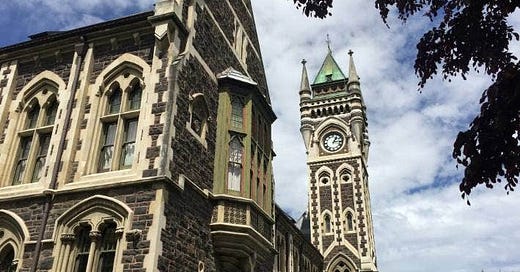



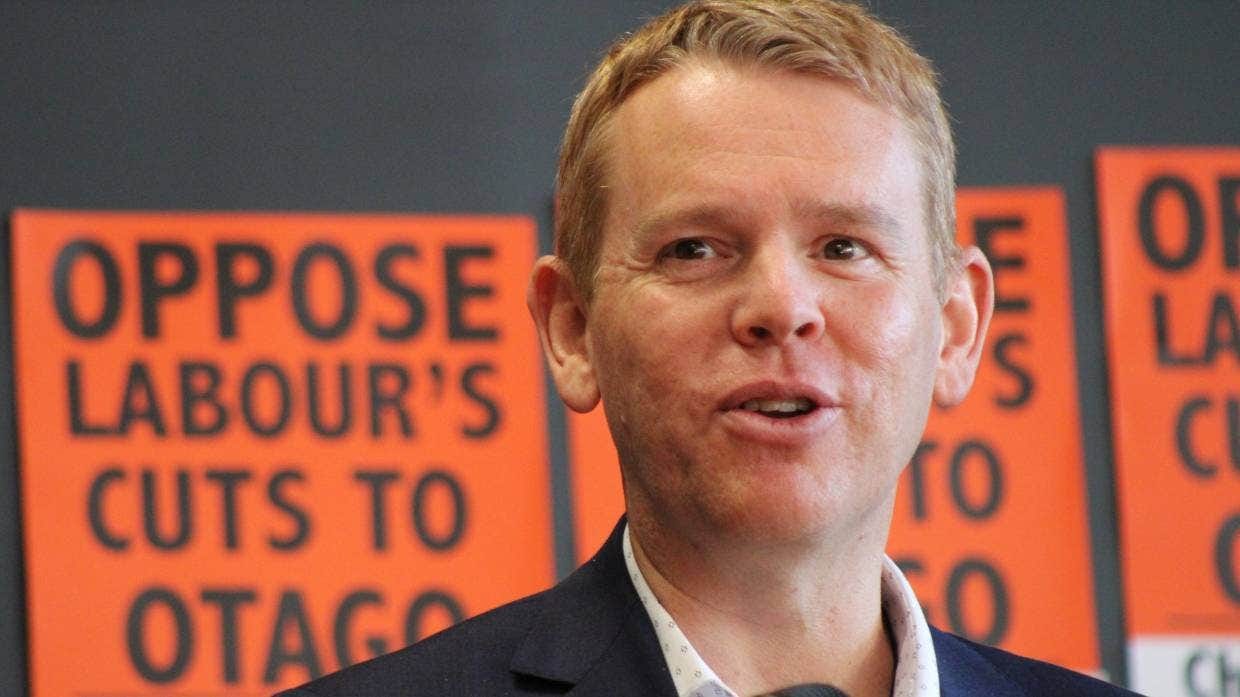
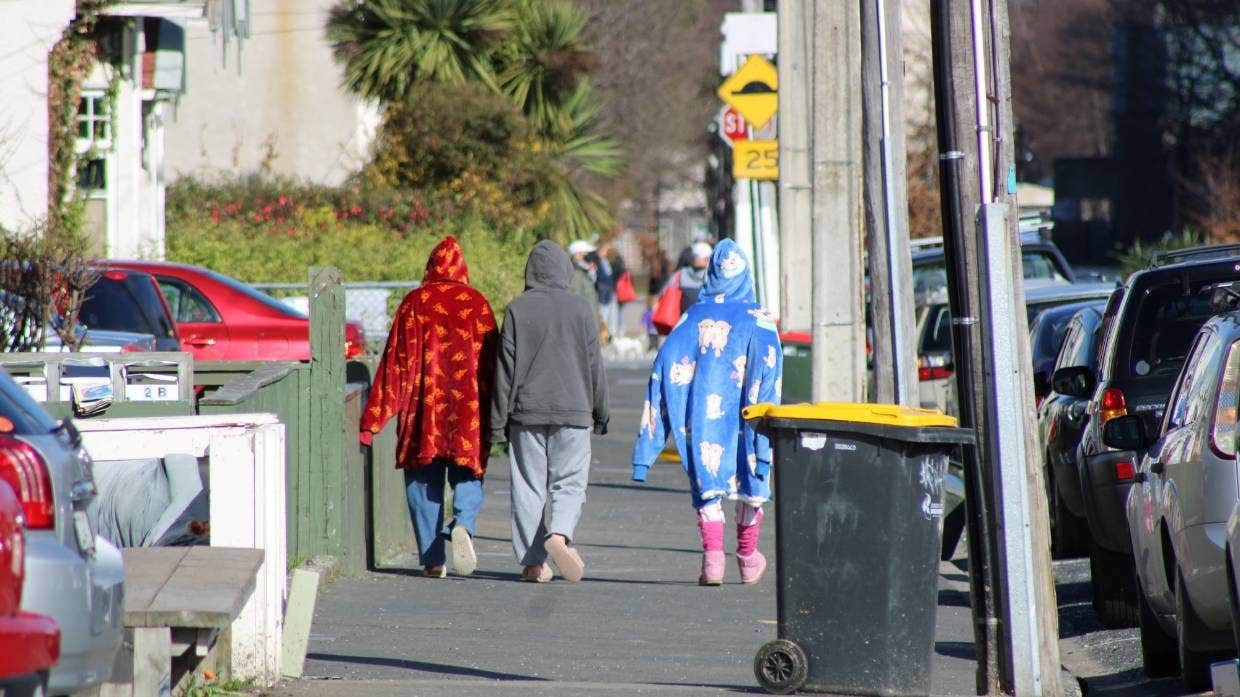

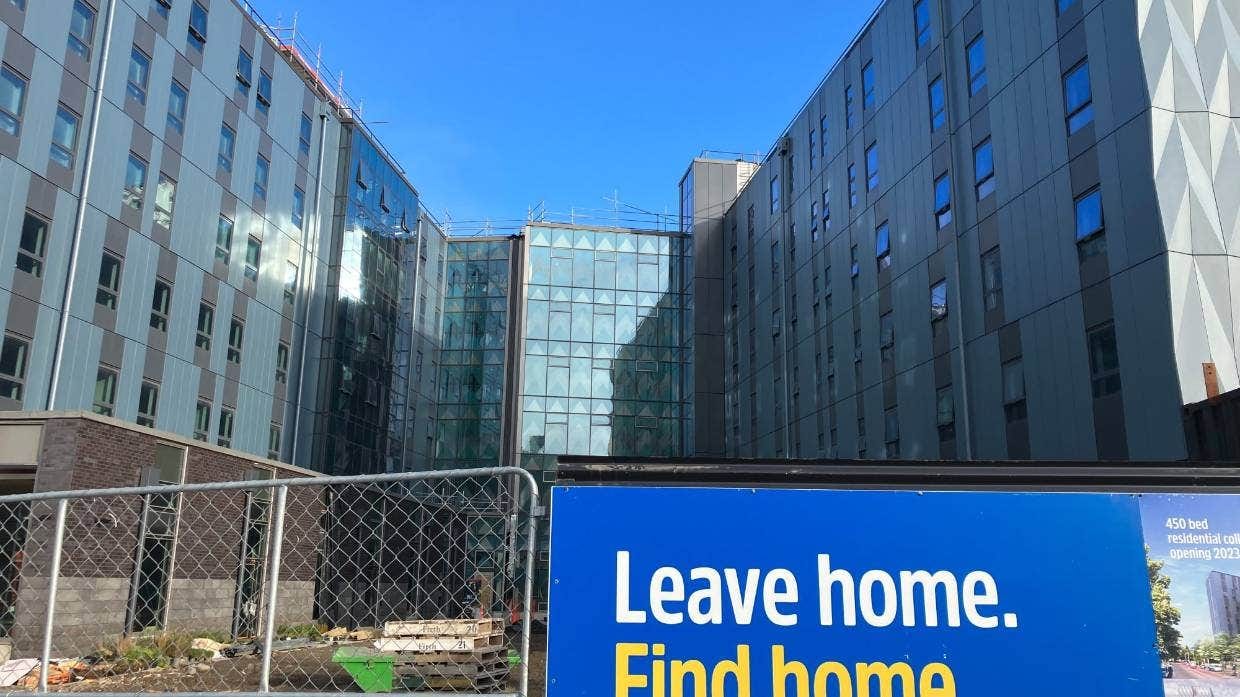

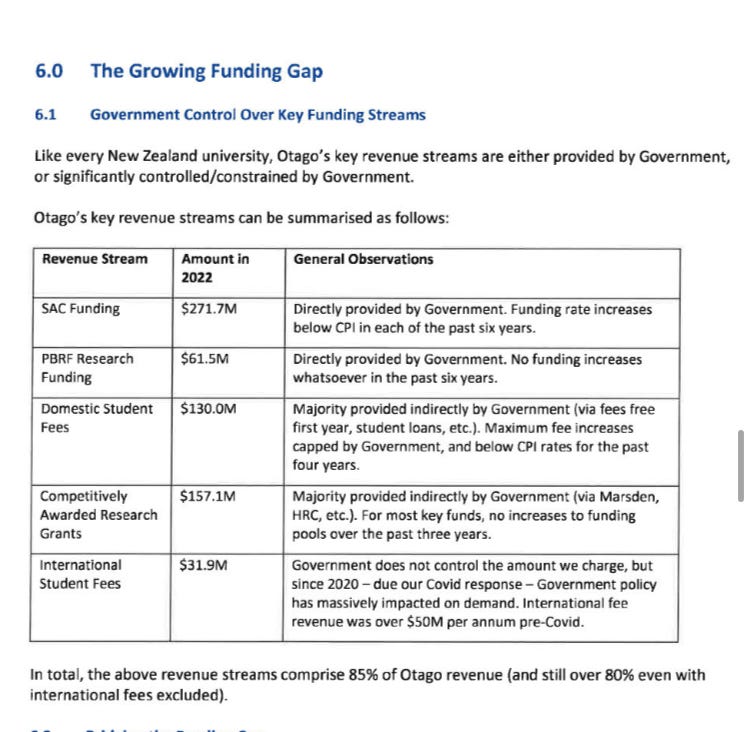




Love the follow up on my old friend Steve, great local lad who has always know how to entertain. I also wonder why the Government didn't increase the Medical School numbers this year 🤔 surely every extra doctor qualified is essential for our health system. Working out some kind of bonding system to keep these graduates in our health system would be a smart move.
The Lion is by the artist Sonac. Up the alley way of Motel on Carroll